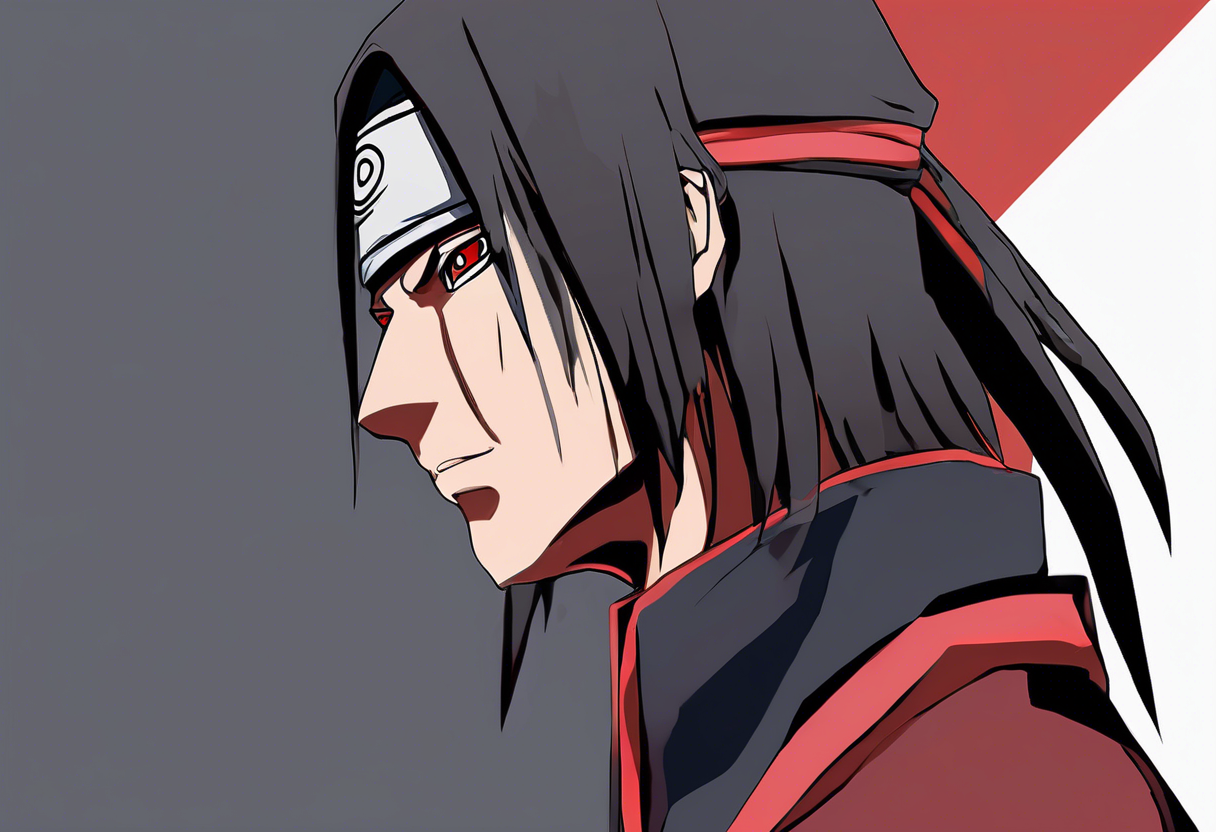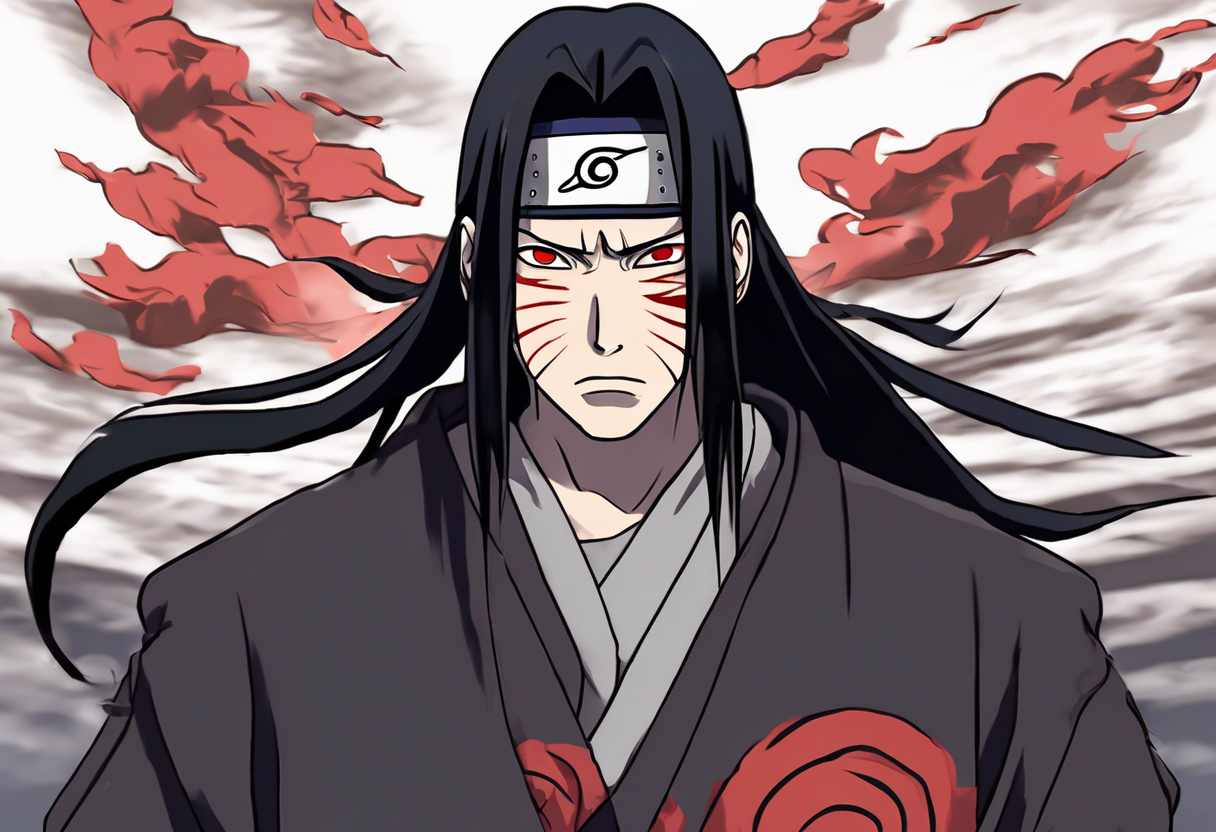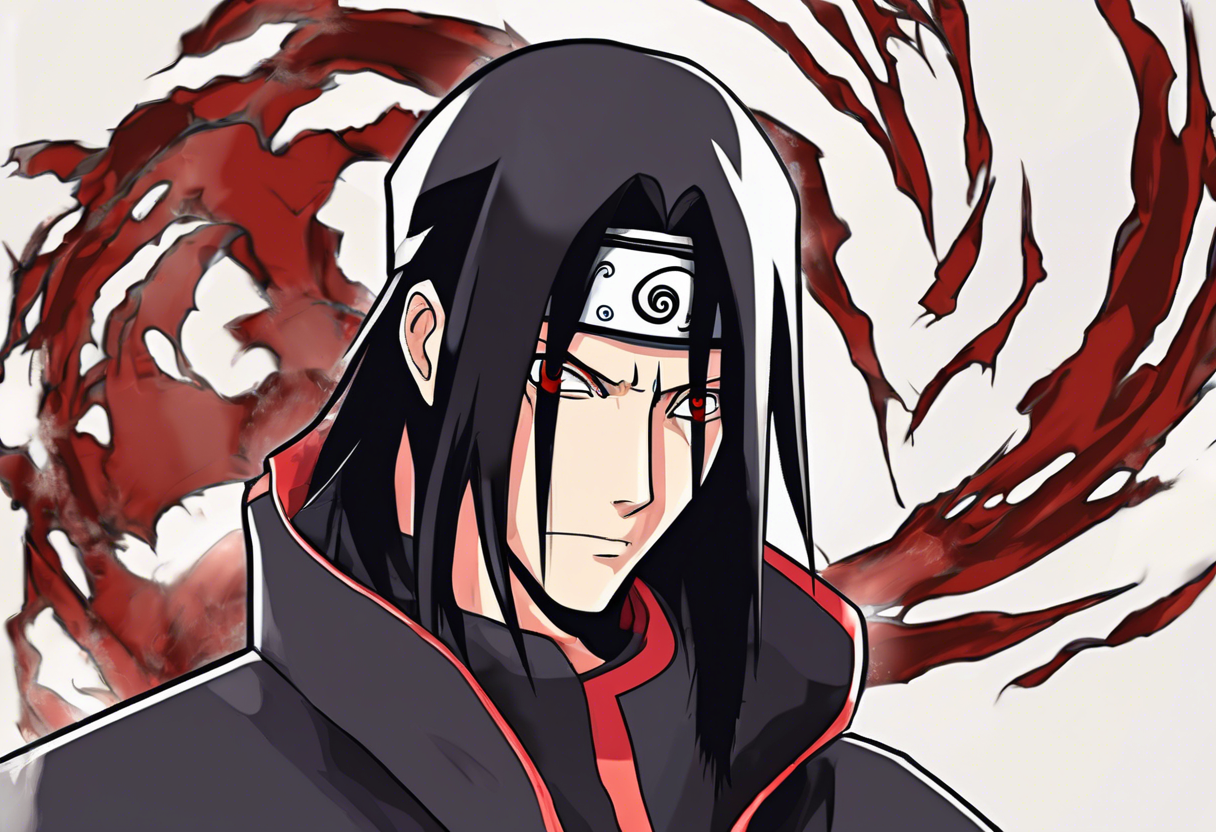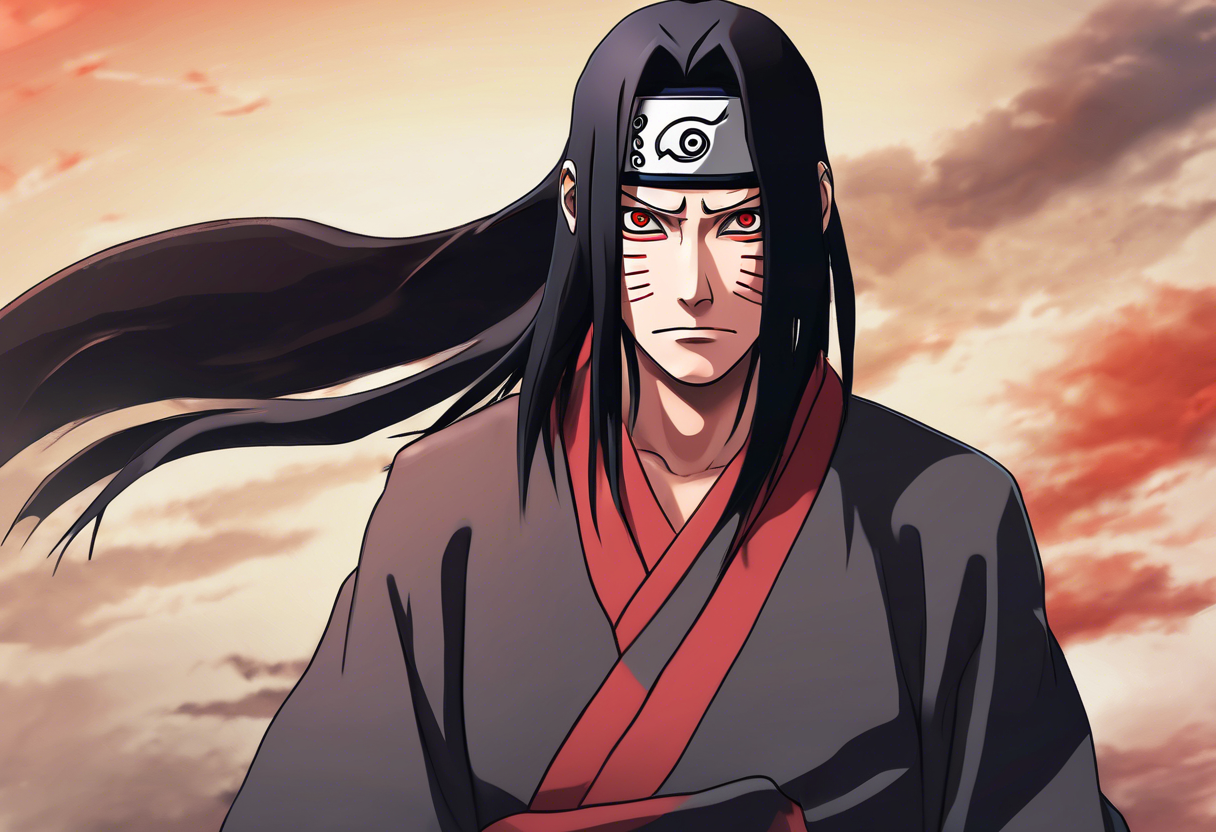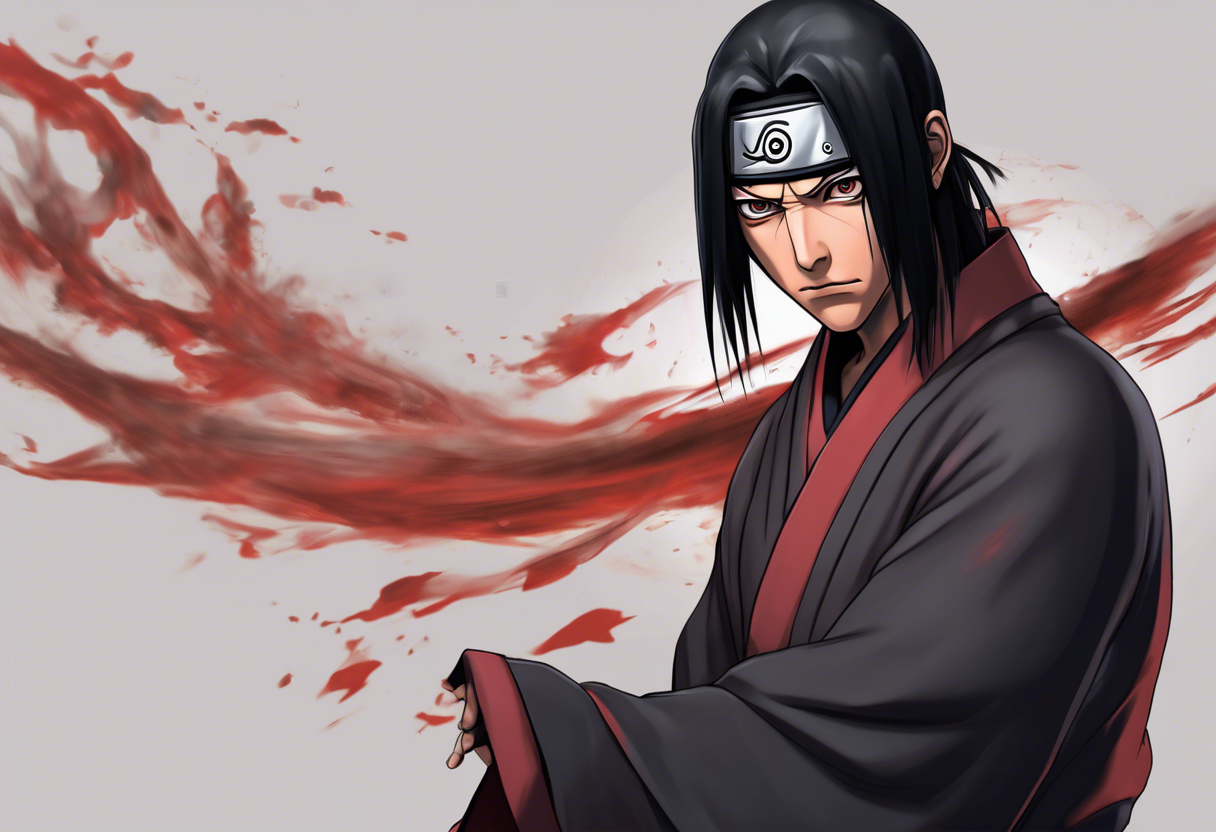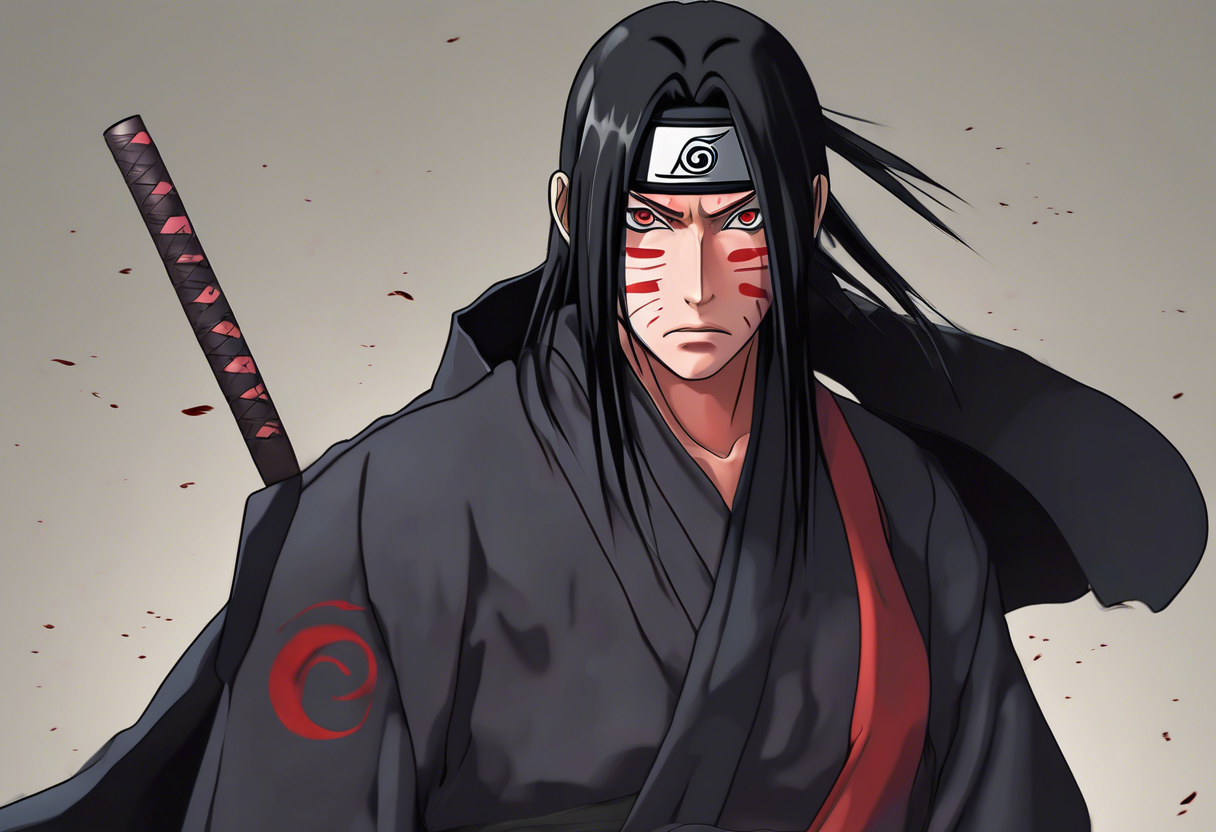Contents
Itachi Uchiha: A Complex and Tragic Figure in the Naruto Universe
Introduction
Itachi Uchiha is a pivotal and complex character in the popular manga and anime series Naruto, created by Masashi Kishimoto. Born into the legendary Uchiha Clan, Itachi is renowned for his exceptional intellect, superior ninja skills, and a tragic backstory that drives much of the narrative in the series. His character embodies themes of sacrifice, duty, and the subjective nature of reality, making him one of the most enigmatic and emotionally charged characters in the Naruto universe.
Itachi’s creation is a testament to Kishimoto’s ability to craft characters with deep emotional depth and moral complexity. Itachi’s story is intertwined with that of his younger brother, Sasuke Uchiha, and their relationship forms a central axis around which many plot developments revolve. The character’s significance extends beyond the series itself, influencing discussions on morality, sacrifice, and the human condition in broader cultural contexts.
Role in the Story
Itachi Uchiha’s storyline is marked by profound suffering and complex moral dilemmas. Born during the era of the Third Great Ninja War, Itachi was exposed to the harsh realities of the ninja world at a very young age. His father, Fugaku Uchiha, took him to a battlefield to familiarize him with the cruel life of a shinobi, an experience that traumatized young Itachi and instilled in him a desire to become a strong ninja capable of eradicating conflicts and bringing peace to the ninja world[1][2].
Itachi’s journey took a dramatic turn when he was tasked with eliminating his own clan to prevent a coup d’état against the Hidden Leaf Village. This decision, made to protect the village and his younger brother Sasuke, led to the Uchiha Clan Massacre, an event that would forever haunt Itachi and profoundly impact those around him. He spared Sasuke’s life, hoping that his brother would one day seek revenge against him, thereby strengthening Sasuke and protecting him from the clan’s machinations and the village’s enemies[1][2].
After the massacre, Itachi became a rogue ninja and joined the Akatsuki, a criminal organization consisting of strong rogue shinobi from different Hidden Villages. His missions with the Akatsuki often put him in conflict with the Hidden Leaf Village, further solidifying his reputation as a traitor and a villain. However, his true motives were far more complex, driven by a deep sense of duty and a desire to protect both his brother and the village[1][2].
Itachi’s final confrontation with Sasuke revealed the true depth of his sacrifice and the guilt he carried. Despite his actions being misinterpreted by many, Itachi’s ultimate goal was to protect Sasuke and the village, even if it meant being misunderstood and vilified. This revelation added a layer of complexity to his character, highlighting the theme of divergent realities and the subjective nature of morality[2][4].
Character Analysis
Itachi Uchiha’s personality is a rich tapestry of contradictions. On the surface, he appears as a cold, ruthless, and calculating individual, but beneath this façade lies a deeply emotional and conflicted person. His motivations are rooted in a profound sense of duty and a desire to protect those he cares about, even if it means sacrificing his own happiness and reputation.
Itachi’s strengths include his exceptional intelligence, strategic thinking, and mastery of ninjutsu. He was recognized as a prodigy within the Uchiha Clan and became the youngest member of the Anbu Black Ops, a testament to his skills and dedication[1][2].
However, Itachi’s flaws are equally significant. His inability to communicate his true intentions and the immense guilt he carried due to the massacre of his clan weighed heavily on him. This internal conflict made him one of the most enigmatic characters in the series, with a depth that resonates deeply with audiences[2][3].
Itachi’s development throughout the series is marked by his constant struggle with his own morality and the consequences of his actions. Despite being portrayed as a villain for much of the series, the revelation of his true motives adds a layer of complexity to his character, making him both relatable and sympathetic. This complexity is a hallmark of Kishimoto’s storytelling, allowing characters to transcend simple categorizations of good or evil[2][4].
Themes and Symbolism
Itachi Uchiha embodies several key themes in the Naruto series, including sacrifice, duty, and the subjective nature of reality. His actions, though morally ambiguous, were driven by a desire to protect the greater good, highlighting the theme of sacrifice and the lengths one is willing to go to achieve their goals[2][4].
The concept of reality and perception is another significant theme associated with Itachi. His statement, "Each of us lives, bound and dependent on our individual knowledge and our awareness. All that, is what we call reality, however, both knowledge and awareness are equivocal. One’s reality might be another’s illusion," underscores the idea that reality is not an objective, universally fixed state but rather a subjective construct shaped by individual knowledge and awareness[4].
Itachi’s use of Genjutsu, a technique that manipulates reality, further reinforces this theme. His proficiency in Genjutsu symbolizes his ability to understand and navigate the boundaries between reality and illusion, reflecting the broader philosophical inquiries into the nature of reality and perception[4].
Cultural Impact
Itachi Uchiha has had a profound cultural impact, both within the Naruto fandom and beyond. His complex character and tragic backstory have resonated deeply with fans, making him one of the most beloved and debated characters in the series. The revelation of his true motives and the emotional depth of his story have inspired numerous fan works, analyses, and discussions[2][3].
In adaptations and spin-offs, Itachi’s character has been consistently portrayed with the same level of complexity and depth as in the original series. His influence can be seen in other anime and manga characters who embody similar themes of sacrifice and moral ambiguity.
Itachi’s impact extends beyond the anime community, influencing broader discussions on morality, sacrifice, and the human condition. His story serves as a reminder of the complexities inherent in human perception and interpersonal relationships, making him a timeless and universal character[4].
Critical Reception
Itachi Uchiha has received widespread critical acclaim for his complexity and depth. Critics and audiences alike have praised his character for adding layers to the Naruto narrative, making the series more emotionally charged and intellectually engaging.
However, his character has also been the subject of controversy, particularly in the early stages of the series when his actions were misunderstood. The revelation of his true motives later in the series mitigated some of this controversy, but it also sparked new discussions about morality and the nature of sacrifice[2][3].
The varying interpretations of Itachi’s role highlight the complexity of his character. Some view him as a hero who made the ultimate sacrifice for the greater good, while others see him as a villain who committed heinous acts. This dichotomy is a testament to Kishimoto’s skill in creating characters that defy simple categorizations[2][4].
Legacy
Itachi Uchiha’s legacy is profound and enduring. His character has inspired countless fans and has become a benchmark for complex character development in anime and manga. The themes and symbolism associated with him continue to resonate in contemporary discussions, making him a relevant and timeless figure.
Itachi’s influence can be seen in other works that explore similar themes of sacrifice, duty, and the subjective nature of reality. His character archetype has been emulated in various forms of media, solidifying his place as one of the most iconic characters in anime history.
In conclusion, Itachi Uchiha is a character whose depth and complexity continue to captivate audiences. His story is a poignant reminder of the human condition, the nature of reality, and the sacrifices we make for those we care about. As a cultural icon, Itachi Uchiha remains an integral part of the Naruto universe and a lasting influence on popular culture.

